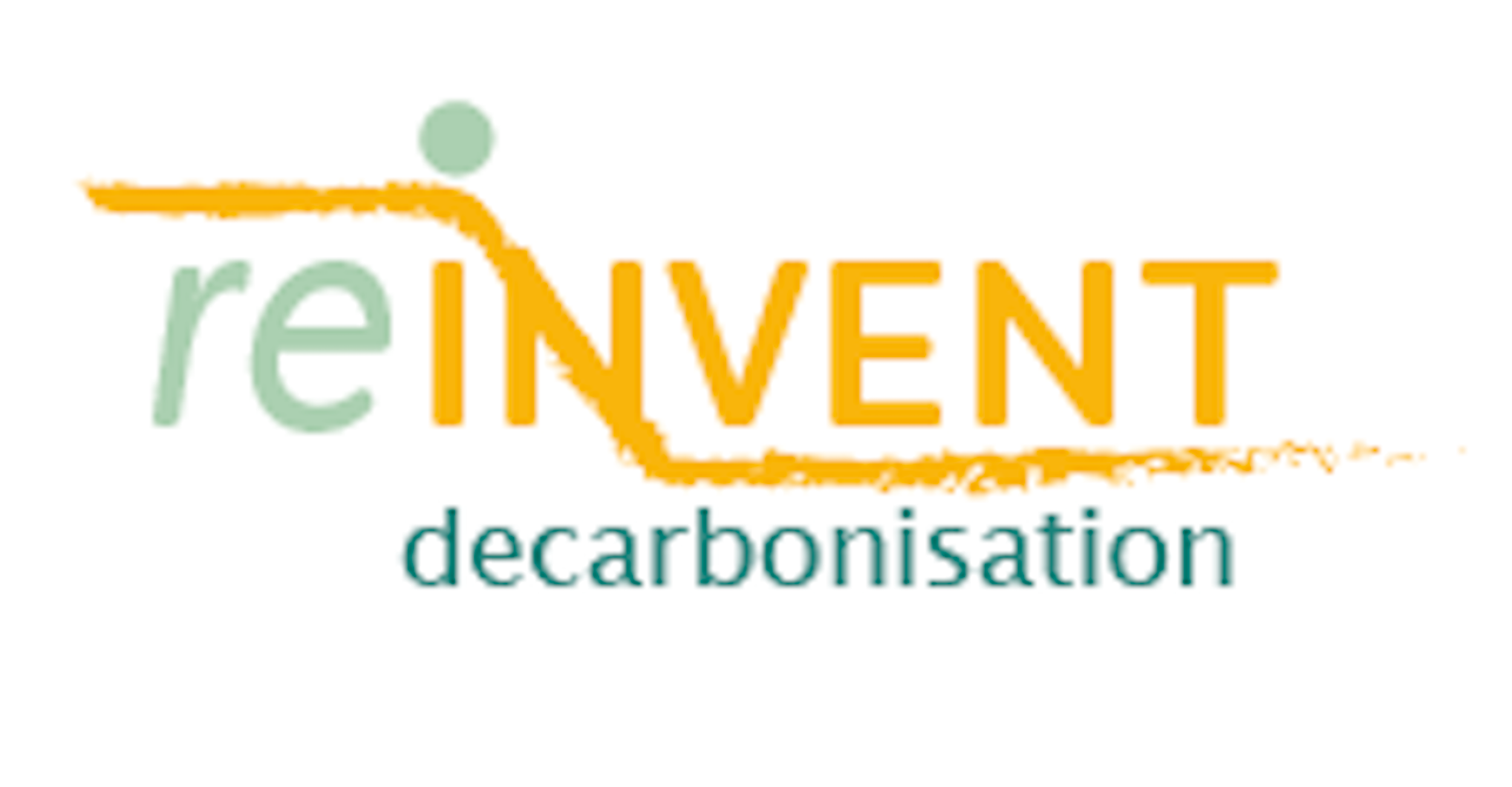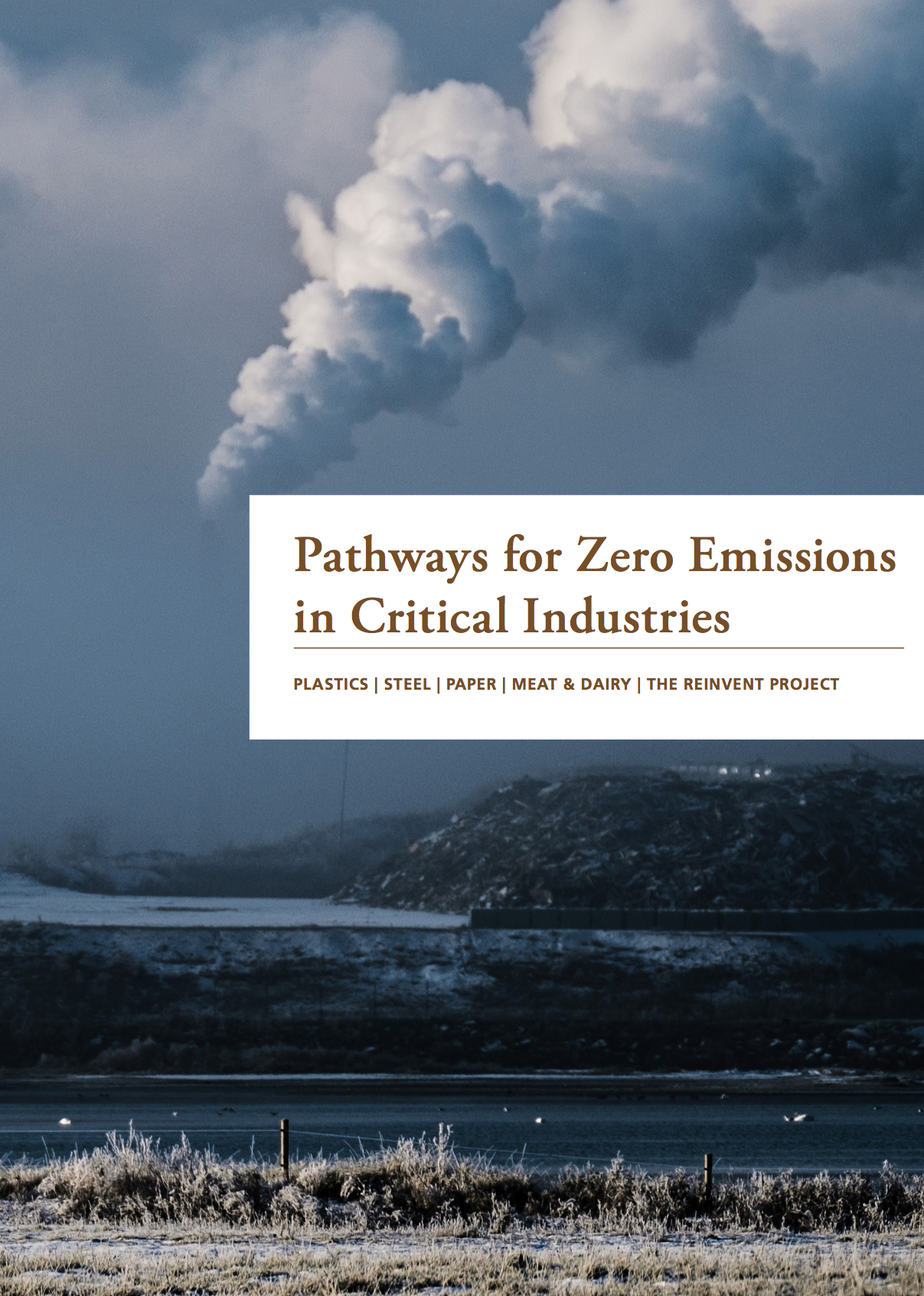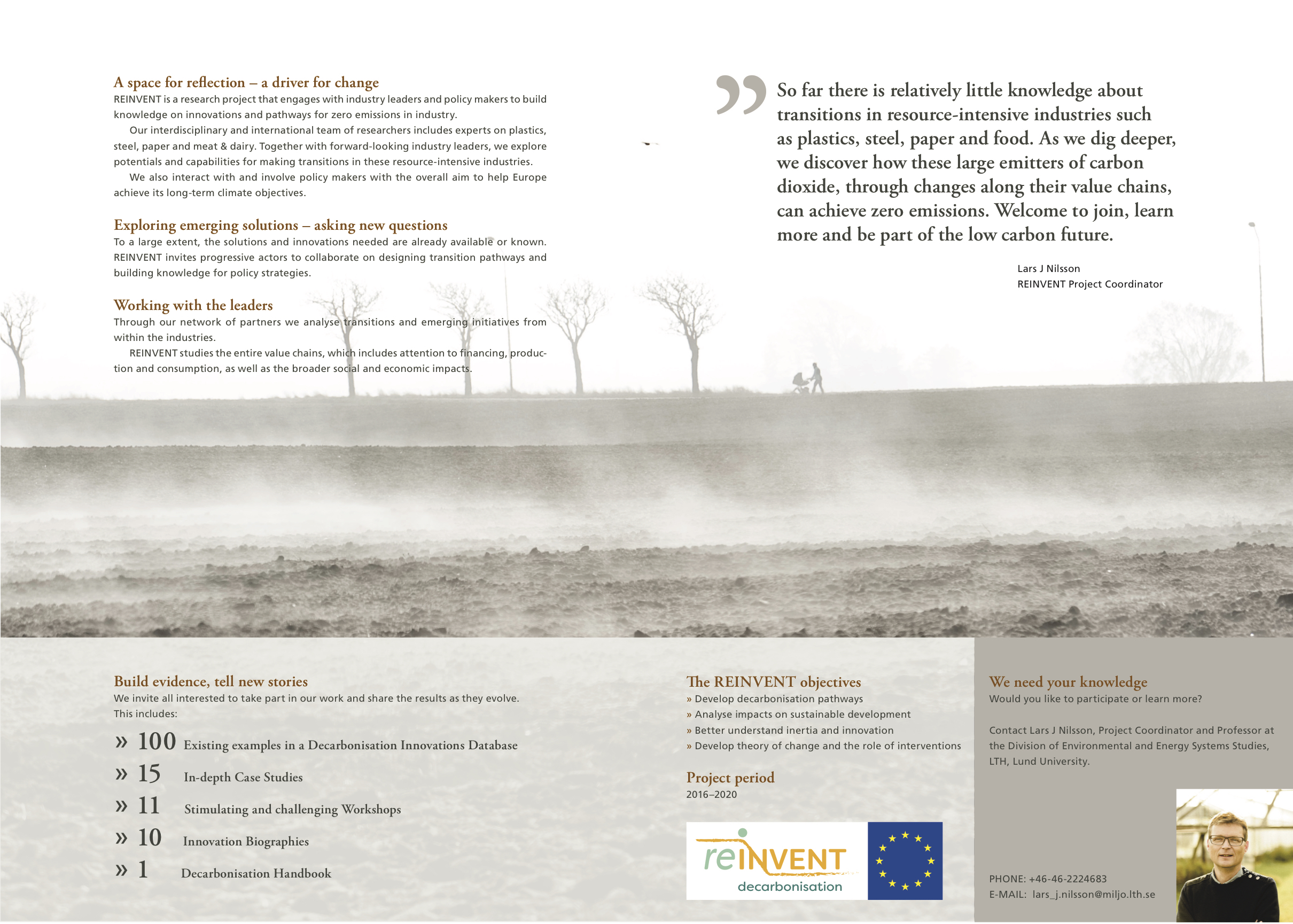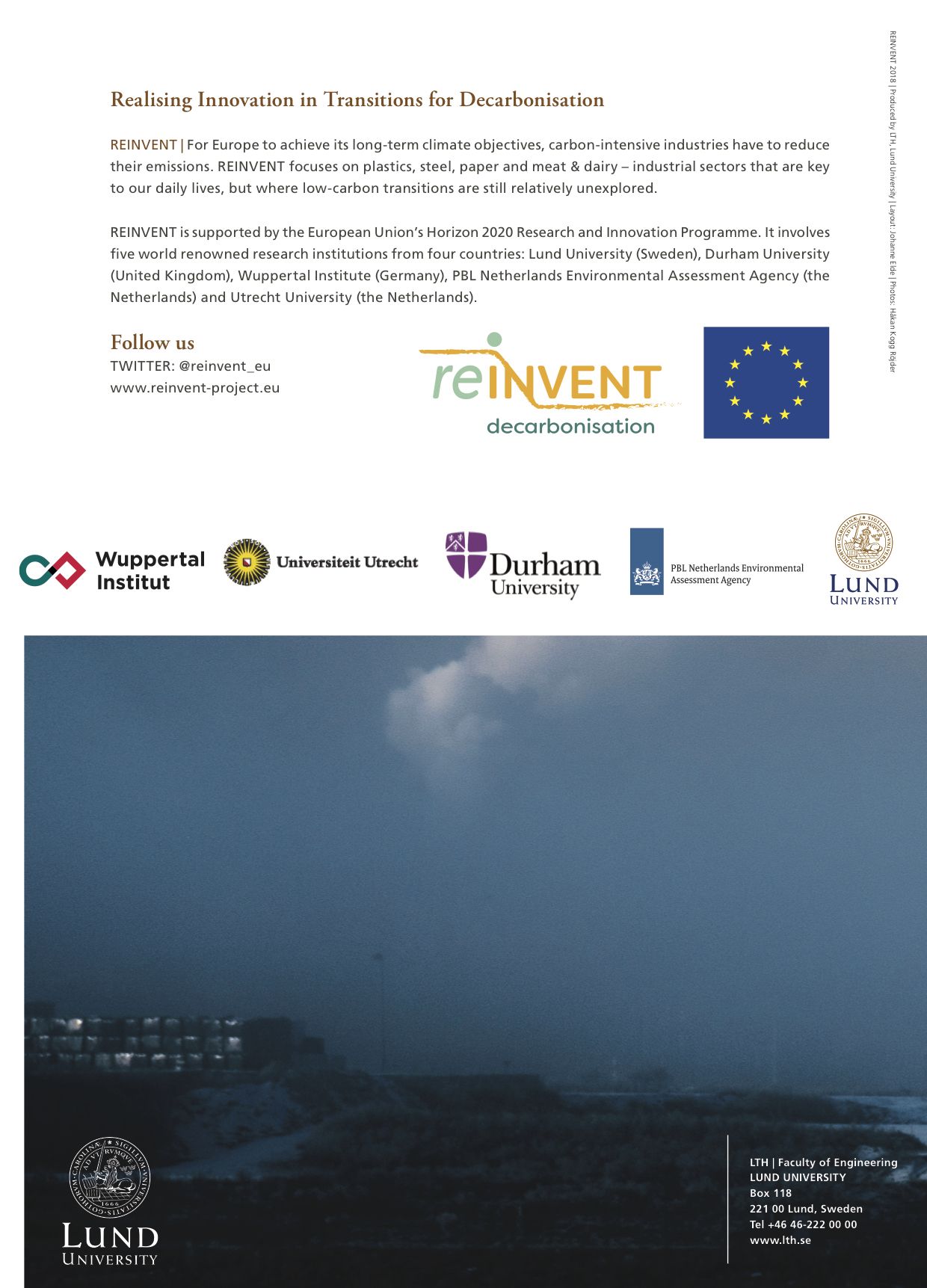
REINVENT: AN OVERVIEW
REINVENT focuses on meat/dairy, paper, plastic and steel – four industrial sectors that are financially important, but where low-carbon transitions are still relatively unexplored. Our approach is to study and understand transitions and emerging initiatives from within sectoral contexts, where government climate policy is only one of many factors that shape perceptions and strategies.
The transition to a zero-carbon society requires more than new technical solutions. REINVENT will study the entire value-chains of the industries to gain a broader understanding of the possibilities of transition. That includes non-technological factors such as supply chains, financing, trade, and social and economic impacts. This perspective is necessary for supporting the innovations and system-wide transformations that decarbonisation requires.
As an interdisciplinary research project REINVENT strives to create a platform for dialogue and learning so that future climate policies can be better adjusted to the conditions within the different sectors.
Five questions about the way to a zero-carbon industry
For Europe to achieve its long-term climate objectives carbon-intensive industries have to contribute to reduced emissions. The research project REINVENT analyses decarbonisation in four industrial sectors. Project coordinator Lars J. Nilsson at the Department of Environmental and Energy System Studies at Lund University answers five quick questions about transition and research.
Why does REINVENT focus on the sectors steel, plastics, paper, and meat and dairy?
– These industries are all financially important, but low-carbon transitions are still relatively unexplored here. The sectors have in common that they’re large emitters of carbon dioxide and to achieve the climate objectives they have to reduce their emissions drastically.
What will you analyse?
– We’re an interdisciplinary research team contributing expertise from different fields. Together we will study the entire value chains, which means also paying attention to non- technological factors such as supply chains, financing, trade, and social and economic impacts. This approach will gain a broader understanding of the emissions and the possibilities of transition.
There are many projects about reducing emissions. What makes REINVENT special?
– Our approach is to study and understand transitions and emerging initiatives from within sectoral contexts, where government climate policy is only one of many factors that shape perceptions and strategies. Through our network of partners inside the industries we will be able to understand how they think and why they act in certain ways.
What are the goals of the research?
– To systematically map innovations and initiatives in these sectors and to explore new pathways towards transition. An overall goal is to make future climate policies better aligned with the specific conditions in different sectors.
How do you feel about the future?
– You can get worried when seeing Donald Trump’s initiatives for coal energy and oil pipelines. But at the same time that makes our research even more urgent. With a stable framework and smart co-operation even industries can achieve zero emissions, Lars J. Nilsson concludes.
Participants
REINVENT is funded by EU Horizon 2020 and includes Lund University (Sweden), Durham University (United Kingdom, Wuppertal Institute (Germany), PBL Netherlands Environmental Assessment Agency (the Netherlands) and Utrecht University (the Netherlands).
Lund University
Environmental and Energy Systems Studies, CIRCLE (Innovation Studies), Economics
Utrecht University
Copernicus Institute of Sustainable Development
Wuppertal Institute
Future Energy and Mobility Structure
Durham University
Department of Geography
PBL Netherlands Environmental Assessment Agency
Department of Climate, Air and Energy
Department of Nature and Rural Areas






